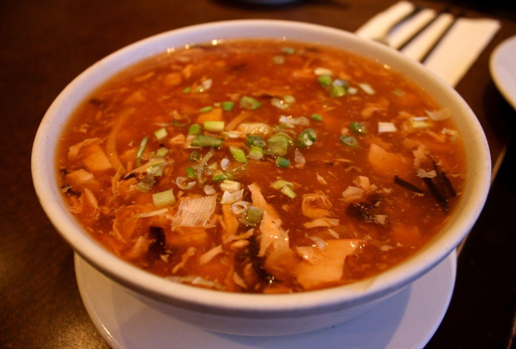Causes of hay fever in children
A senile runny nose is an allergic reaction. In the summer and spring months of the plants a fine powder is released, which is called pollen, and some children begin to get an allergy to it.
There are three types of pollen, which are mainly tree pollen, grass pollen and pollen. The tree pollen is the one that appears between the end of March and mid-May, the grass pollen is available in the air between mid-May and July, the pollen in the end of June and September. It is noteworthy that the senile runny nose is quite rare in children under five-year of age.
However, if the remaining family members are affected or prone to hay fever, your child may also intercept it. Does your child get tired at the same time each year? Most assuredly, it is more prone to seasonal allergy. Some of the reasons are listed below:
- Dust mites
- Mold spores
- Cigarette smoke
- Animal hair or hair
- Pollen (from grasses, flowers and trees)
But what is not certain is whether a person can be allergic to one or more types of pollen. This can be determined only at the time of onset of symptoms. These allergies can start at any age, which means that even if your children have not suffered from hay fever in the last 8 or 10 years, they can also develop it.
Symptoms of hay fever in children
Does your child have a cold at the same time each year? If your answer is yes, then you need the reason you should be looking at seasonal allergies. But you need to check your symptoms. The nose is not the only organ that is affected by hay fever, there are many more.
Some of them are listed below:
- Snot Nose
- Red, itchy, swollen or watery eyes
- Stuffy nose (both, or one nostril)
- Headache
- Frequent sneezing
It is vital that you provide your child with proper treatment if it suffers from a hay fever. If it is not treated, this can lead to a number of health problems such as tiredness, poor sleep and daytime sleepiness.
Hay fever can also lead to the following disease conditions:
- It creates eye infections from the fricasof the itchy eyes.
- Increases the likelihood of sinus infections
- Bad Breath
- Sore throat
- Affects children's performance in their training
- Aggravating asthma
Instead of treating only superficial symptoms, it is recommended to provide continuous healthy nutrition to the body and strengthen the lungs and respiratory system.
Hay fever according to Ayurveda
According to Ayurveda, the senile runny nose is a disorder of "Kaphapitta". People with poor medical condition can also suffer from hay fever. It is a reaction that manifests itself in the eyes and nose, caused mainly by the allergen of colored pollen.
Causes of hay fever
Persons who are unable to neutralize these irritants are prone to allergies and hay fever. In such conditions, Vata, which is responsible for changes in the body, is triggered by seasonal changes in nature. The aggravation or excess stimulation of the wool dosha is caused by certain factors causing hay fever and certain allergies.
Usually the senile runny nose is triggered by:
- External factors such as pollen, dust, smoke, animal hair or hair, etc.
- Exposure to moisture, dust and cold
- Asthma
- Stubborn diseases
- Low immunity
- Sinusitis
- Family heredity to the disease
- Low immunity
- Unhealthy lifestyle in the season of changing time
Symptoms of hay fever:
- Itching in the throat and nose
- Fever
- Cough
- Moist eyes
- Reducing sensations of taste and smell
- Sinus pressure
- Heaviness in the head
- Headache
- Pain in the body
- Breathlessness
- Itching in the oral cavity
Herbs in hay fever
Herbs are a natural medicinethat will make you feel better. The most useful of them are:
- Long pepper or "grope"– it is a good immunomodulator and has the property to remove mucus
- Ginger-has anti-inflammatory properties and eliminates congestion of the nose and throat
- Malabarska Chestnut-bronchatory Agent
- Slaccle root-soothes the lungs and throat
- Turmeric– may prevent the onset of hay fever
- Basil-strengthens the respiratory system and heals congestion and runny nose
Diet and lifestyle in hay fever:
- Consume freshly prepared foods
- Include spices like turmeric and black pepper in your daily diet.
- Eat hot soups and liquidsto liquefi clogged with mucus nososip.
- Eat a lot of steamed green vegetables, topped with pepper and basil.
- Avoid heavy, fermented, fried, acidic foods.
- Avoid sweet desserts and yogurts.
- Avoid cold foods.
- Avoid alcohol.
- Avoid dusty, cold and damp places.
- A healthy night's sleepis very important.
- Try steam inhalationto relieve nasal obstruction and sneezing.
- Use maskswhile exposing yourself to irritants such as dust, fumes or pollen.
- Do light stretching exercises.
Treatment of hay fever according to Ayurvedic medicine
According to Ayurveda, the senile runny nose is a disorder of "Kaphapitta". People with poor medical condition can also suffer from hay fever. It is a reaction that manifests itself in the eyes and nose, caused mainly by the allergen of colored pollen.
Aûrkliničnite treatments of hay fever include treatment with "Shodhan" to purify the nasal passages called "Nasya", in which medicinal ayurvedic herbal oils are put into the nostril.
Then you can apply herbal massages with oils and steam baths to the person, which help to clear any congestion of mucus in the sinuses, causing redness, burning, itching and watery eyes.
"Panchakarma" is also applied in certain cases, as a very effective means of treating hay fever.
The approach of Ayurvedic medicine to treatment is to influence the innate healing reaction of our immune system, which in turn lead to complete mental and physical healing of the patient.






0 Comments